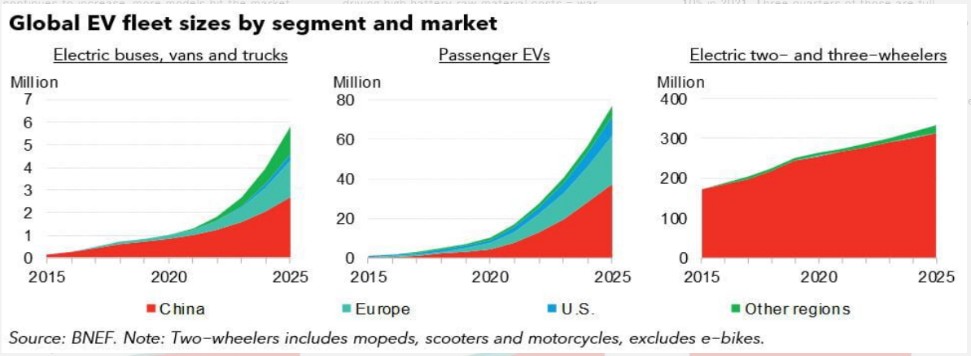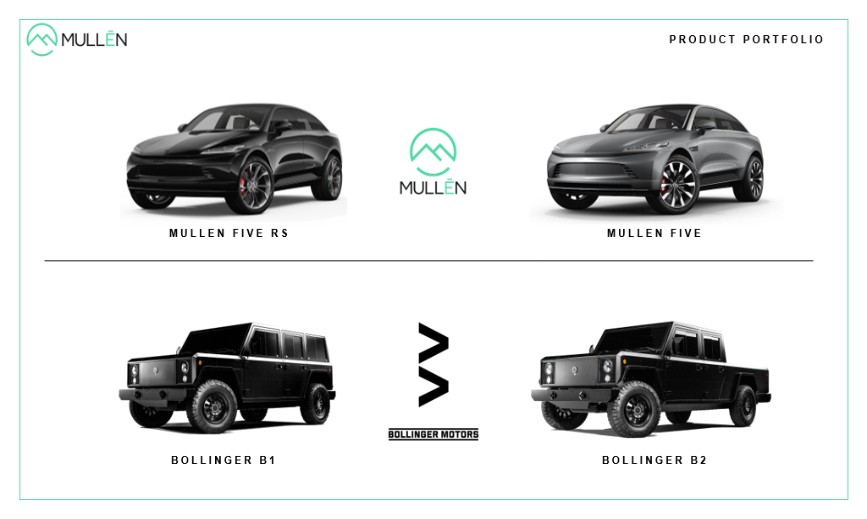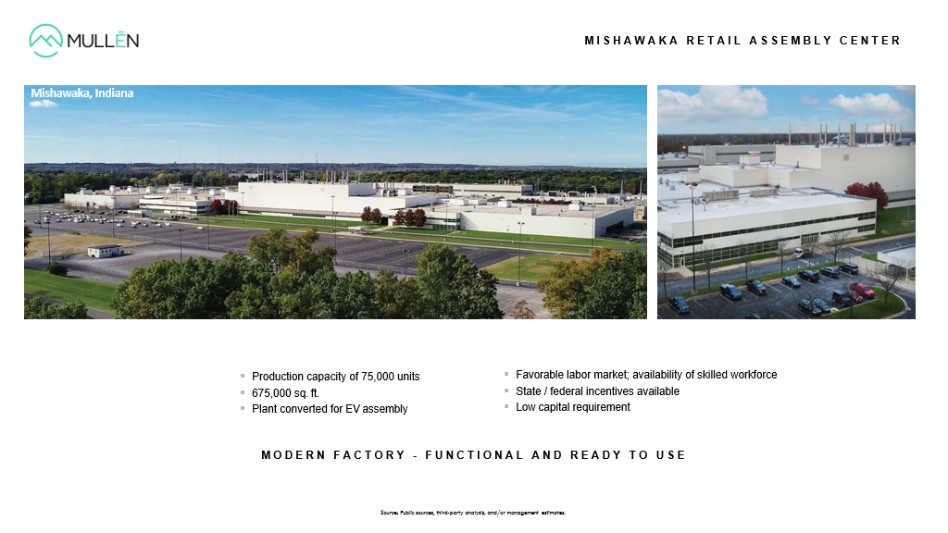continuing build-out of electric charging infrastructure, and the growing comfort with EV range capabilities could ease “range anxiety” and facilitate adoption.

Source: Derived from data in Bloomberg Electric Vehicle Outlook 2020
The rise of the Sports Utility Vehicle
When designing our first EV offering in 2021, our team elected to develop a Sport Utility Vehicle (“SUV”) because of the recognized growth in SUV sales. According to market research, today’s customers increasingly prefer SUVs to traditional sedans or crossovers.
The importance of Commercial and Fleet Strategies
Fleet and Commercial segments represent over 20% of the total U.S. market and is comprised of Government, Commercial and Rental segments. Mullen’s Fleet First strategy with a Class One commercial van offering, followed quickly by Class 3 and Class 4 cab chassis models planned for 2023, takes advantage of segments vacated by competitors, and allows a first mover advantage for the company. Our goal is to build strong customer relationships with fleet operators and companies that rent or lease vehicles to fleet operators and to capture a significant market opportunity as the broad trend of vehicle electrification continues
Our Vehicles
In 2022, we increased our existing product lines to include a Commercial EV Class 1 van and a Class 3 Cab chassis. The recent Bollinger Motors acquisition further expanded the product lines to include the B1 SUV and B2 pickup truck as well as Commercial Class 4-6 chassis, all of which are fully electric and built/assembled within the USA.
| ● | Mullen FIVE and Mullen FIVE RS: The Mullen FIVE represents Mullen Automotive’s entry into the full-electric, mid-size luxury SUV market. The Mullen FIVE is competitively priced starting at $55,000 - for the United States market before federal and state incentives are applied. Offering at least two optional packages, with a price range from a base price of $55,000 to $75,000 (for additional features), will allow customers to purchase a vehicle with options that best fit their budgetary and performance needs. The Mullen FIVE RS is an ultra-high-performance EV that will feature a top speed of 200 mph and acceleration from 0-60 mph in just 1.9 seconds. The vehicle will be equipped with 800-volt architecture, all-wheel drive, a two-speed gearbox, and over 1,000 horsepower. |
| ● | Mullen Class 1 Van: The Mullen 1 van features specifications offering a good fit for a variety of applications like package delivery and service routes. Riding on a 120-inch wheelbase and measuring in at 186 inches long, 65 inches wide, and 75 inches tall, it has 160 cubic-feet of cargo volume accessible via dual sliding side doors or |
9






